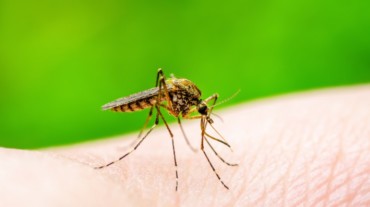
It’s that time of the year when we hear about dengue and malaria cases. Mosquitoes are most active during the late spring, summer, and early fall months. And because now it is summer, mosquito season reaches its peak, increasing the threat of dengue and malaria. Their bites are itchy and their buzz is annoying. Therefore, without even a second thought we switch to mosquito repellents such as creams, coils, and mats, to protect ourselves from mosquito bites. But have you ever wondered whether mosquito repellents are safe for your skin or not? Don’t worry, we’ve got an expert to answer this.
HealthShots spoke to Dr Rinky Kapoor, Consultant Dermatologist, Cosmetic Dermatologist & Dermato-Surgeon, The Esthetic Clinics about the impact of mosquito repellent on skin.

Mosquitoes transmit diseases and are the reasons behind malaria and a chikungunya outbreaks. They breed and spread at a fast rate. One of the safest and quickest ways to avoid mosquito bites is to use a mosquito repellent on the exposed areas of the skin. They can be harmful because they contain certain chemicals which can have some effects on the skin over a period of time.
According to Dr Kapoor, “Most mosquito repellents contain DEET which is safe to use in most cases. However, regular and frequent use of the chemicals can an unpleasant effect on the skin and body.”
* They can cause skin irritation, allergies, inflammation, rashes, and dizziness, and can make it difficult to concentrate in regular activities.
* If it goes into the eyes it can cause burning
* If you apply it on the lips, it causes numbing and burning.
* If ingested, the mosquito repellent can cause poisoning.
Spraying the repellent or using the creams also make you unattractive to the insects and they won’t bite you. But in order to avoid the side effects caused by mosquito repellents, you can try certain home remedies to keep mosquitoes at bay.
Also, read: Burning mosquito coils can kill you. YES, it’s true
There are natural mosquito repellents that one can use such as citronella oil, essential oils, lemongrass, neem oil, eucalyptus oil, etc. Mix them with a carrier oil before using and reapply every two hours for maximum protection, said Dr Kapoor.

* Avoid spraying on cuts, bruises, or open wounds.
* Don’t use too much of the repellent, just a little to cover the exposed skin
* Don’t use it on the private parts
* Wash your skin with soap and water after you are home
* The clothing should be washed before wearing again.
* Do not spray too close to the skin and keep your eyes and lips closed
* For the face, take some repellent on hand and then gently dab on the face.
* Wear long-sleeved clothing
* Avoid going out at ‘peak’ mosquito times – dusk and dawn.
Select Topics of your interest and let us customize your feed.
PERSONALISE NOWGet Latest Updates on Beauty, Hair Care, Natural Cures, Skin Care